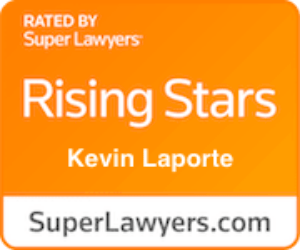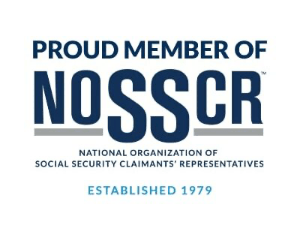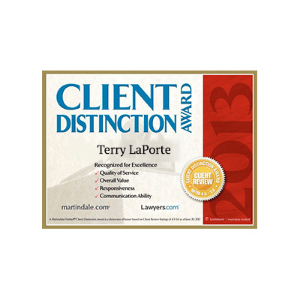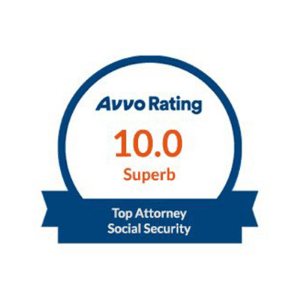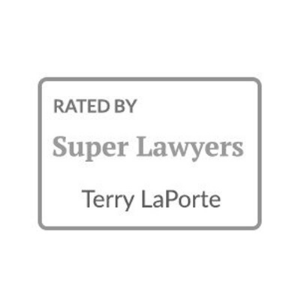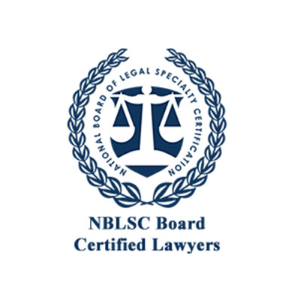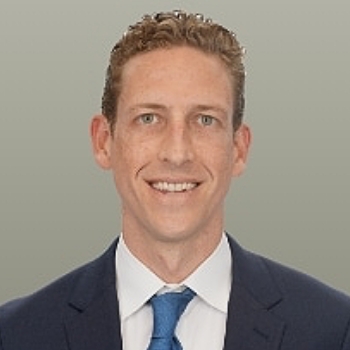The SSDI Podcast - EP6

- AUDIO TRANSCRIPT
Speaker 1 0:00
Ever heard about those crazy long waits for disability hearings? Like, years we’ll get this. The pandemic kind of shook things up, and now we’ve got this whole remote hearing thing. Yeah, it’s
Unknown Speaker 0:09
wild how that all came about, huh?
Speaker 1 0:11
Totally. But now everyone’s like, Wait, is this even fair? Is it better? Is it right for me? So today, we’re diving into the pros and cons of these remote disability hearings. We’re using this article from the Laporte law firm. It’s got some really interesting insights.
Speaker 2 0:26
It is pretty fascinating how a whole new system basically just popped up, you know, out of necessity, because of the pandemic, right?
Unknown Speaker 0:33
A total pandemic side effect. But
Speaker 2 0:35
here’s the thing, it’s actually had some pretty unexpected benefits for some people applying for disability. Okay,
Speaker 1 0:41
so let’s back up for a sec. Pre COVID, it was all about those in person hearings. Yeah, you
Speaker 2 0:46
picture that classic courtroom scene, exactly. But then,
Speaker 1 0:49
boom, the world shuts down, and everyone’s gotta go digital. Suddenly, it’s all telephone and video calls for these hearings.
Speaker 2 0:56
And you can imagine people were a little freaked out, like, would this even be fair? Could it really be as good as being in the same room with the judge? Totally
Speaker 1 1:04
all those worries about fairness and due process, totally valid, huge concerns at the time. It does seem like there’s something about that face to face thing, you know, hard to replicate that digitally. But here’s what we’ve learned, remote hearings are here to stay, and they’ve actually been a game changer for a lot of folks. And I mean, in a good way,
Speaker 2 1:24
yeah. Like, for one thing about the wait times, they’ve gone way down for some folks, seriously, yeah. How much are we talking during that peak pandemic time? Some people who went with a remote hearing, they got their decisions that same year. We’re talking 2020, no way. But the people who are like, Nope, I want that in person hearing they were stuck waiting, like some of them, up to two years, two years.
Speaker 1 1:47
I mean, come on, that’s forever when you’re relying on those benefits exactly
Speaker 2 1:50
so that speed, that faster turnaround time, it’s been a huge deal. It makes
Speaker 1 1:56
total sense, when you think about it, those judges, the ALJs, they can spend way more time actually doing hearings and writing decisions. Now it’s like they streamline the whole process, right?
Speaker 2 2:07
And because of that flexibility, they can even transfer cases between offices. Now, you know, to help with the backlog, it’s kind of amazing how much possibility opened up.
Speaker 1 2:18
So it’s not just individual hearings that are faster. It’s the whole system getting more agile potential. But let’s talk about the human side of this first oh yeah for sure. I mean, think about the travel, the cost, the time commitment. You’re not fighting rush hour, you’re not hunting for parking, you’re not trying to navigate some big, confusing Federal Building, especially if you’re not feeling your best to begin
Speaker 2 2:41
with, right? And especially for people with mobility issues or anything that makes leaving home really difficult, it takes such a weight off. I bet the article even gives this example, someone with Parkinson’s, they said they’d find it so much easier to do the hearing from home, where they can just relax and not worry about their tremors.
Speaker 1 2:58
That’s a great point. It’s almost like it levels the playing field a bit, you know exactly, makes the system more accessible for people with all kinds of disabilities. It’s removing barriers
Unknown Speaker 3:06
that were totally there before. Okay, but
Speaker 1 3:09
let’s be real. Can’t all be sunshine and roses, right? Yeah, I’m guessing there are some downsides to these remote hearings, too. What are people worried about? Well,
Speaker 2 3:19
one of the big ones is the lack of personal connection. You know, you’re not face to face with the judge, right, right? So some people feel like it’s too impersonal, like they’re not really being seen or heard. I
Speaker 1 3:30
can see that it could feel kind of cold or distant, but don’t judges have, like guidelines about not making decisions based on how someone looks or acts in a hearing anyway. Oh, yeah,
Speaker 2 3:42
totally Yeah. The Social Security Administration’s got strict rules about that. The decisions are supposed to be based on medical evidence and what the person says, not on how they look or act. Okay, so
Speaker 1 3:52
the format’s different, but the goal is still to make it fair and impartial,
Speaker 2 3:56
exactly. But of course, anytime you bring technology into it, there’s the chance of glitches, oh, tech troubles, yeah, like a bad internet connection or the call dropping at the worst possible time. It’s not as common now that everyone’s more used to video calls and stuff, but it still happens. It’s
Speaker 1 4:11
like the 21st century version of the dog ate my homework totally. So we’ve got faster decisions, easier access, but then also potential for glitches, maybe a less personal feel.
Speaker 2 4:23
It’s a trade off. It is, it is. And here’s where things get even trickier, even though there are actually fewer disability claims being filed now than before the pandemic started. Really fewer. Yeah, but get this, wait times are actually going up. Wait, what?
Speaker 1 4:38
That doesn’t make sense. Why would the wait be longer? If there are fewer claims?
Speaker 2 4:43
It’s a staffing issue. The Social Security Administration, they’ve had a lot of people leave, and it’s created this huge
Speaker 1 4:47
bottleneck. So even if the hearings themselves are quicker, the whole system’s still kind of jammed up exactly.
Speaker 2 4:52
The article even says that just to talk to someone on the SSA phone line, the average wait is a crazy 36 minutes. Yes. And depending where you are in California, the week for a hearing could be eight to 13 months.
Speaker 1 5:05
Wow. So even if you do go the remote route to try to speed things up, you might still be waiting a while just to get to that point.
Speaker 2 5:12
Unfortunately, yeah, and that’s why it’s so important for people to really understand their options. Think about what’s going to work best for them, you know, individually.
Speaker 1 5:21
So how does someone decide if a remote hearing is right for them? Seems like there’s a lot to weigh.
Speaker 2 5:27
The article lays out a few things to think about, and it really emphasizes that there’s no one size fits all answer, but a big one is, can you really communicate your needs and your experience through a screen or over the
Speaker 1 5:40
phone. That’s true. Some people are just better at that. Face to face, right?
Speaker 2 5:44
And are you comfortable with the tech? Do you know how to use video calls or fix it if something goes wrong? Yeah, you
Speaker 1 5:51
want to be stressed about the technology on top of everything else,
Speaker 2 5:54
exactly. And then how complicated is your case? Are there things that might actually be better to talk about in person. Sounds
Unknown Speaker 6:01
like you really got to know yourself and know your situation.
Speaker 2 6:04
You got it. And the article is really clear on this. If you’re thinking about a remote hearing, talk to a disability attorney, makes sense. They can help you figure out if it’s a good idea for your specific case and help you make the best decision. It’s like having a guide, someone who knows the way exactly, someone who’s been there.
Speaker 1 6:21
So let’s say someone decides, yes, remote is for me, what can they do to make sure it all goes smoothly? Any tips? Oh, yeah, the
Speaker 2 6:31
article has some great practical advice. We should definitely talked about that perfect.
Speaker 1 6:35
Let’s save that for part two. I know everyone’s gonna wanna hear those insider tips. Sounds
Speaker 2 6:39
good to me. Okay, so let’s get into those practical tips for anyone out there who’s getting ready for a remote Disability hearing. Yeah,
Speaker 1 6:46
even if you’re like, Okay, remote hearings the way to go. It’s still good to know what to expect, how to make sure everything goes smoothly, right?
Speaker 2 6:53
And the article makes this really clear, the actual format of the hearing, like the legal standards, all that stuff. It’s pretty much the same as if you were there in person. So
Speaker 1 7:03
you still get your opening statements and all that, yep, introductions,
Speaker 2 7:07
opening statements. They ask you questions. You make your closing statement. All the same pieces, so
Speaker 1 7:11
the structure is the same. It’s just the like, where that’s different Exactly.
Speaker 2 7:15
But there are some things to keep in mind, because it eyes different, like they recommend being ready to go about 45 minutes before your hearing’s actually scheduled. Really. Why so early? Just in case the judge wants to get started early, you know? Oh,
Speaker 1 7:28
okay, so better to be over prepared than scrambling at the last minute Exactly.
Speaker 2 7:32
And since a lot of these hearings are happening on video calls like Microsoft Teams, it’s super important to make sure you know how to use that stuff beforehand? Oh,
Speaker 1 7:41
yeah, good point. No tech surprises on hearing day, right?
Speaker 2 7:44
You don’t want to be trying to figure out how to unmute yourself while you’re trying to explain your case
Speaker 1 7:49
totally and whether you’re on video or just a regular phone call, clear communications
Speaker 2 7:55
key, right? Oh, absolutely essential in any situation, but especially in a remote hearing. So
Speaker 1 8:01
like waiting for the judge to finish talking before you answer, speaking slowly and clearly, all that good stuff, just being respectful in your interactions, it all makes a difference. It really
Speaker 2 8:11
does. It shows that you’re taking it seriously. Even if you’re not sitting right there in front
Speaker 1 8:15
of them, right they’re still evaluating you, deciding if your claim is valid. So it’s like you gotta adapt those courtroom etiquette tips to the digital world
Speaker 2 8:23
exactly. And speaking of tips, the article has this whole section on preparing for a remote hearing. It’s really good. Okay,
Speaker 1 8:30
give me those practical tips. I’m all about practical tips. What can people do to feel more prepared and confident going in?
Speaker 2 8:36
Well, first of all, they say, make sure you’ve got a good internet connection and a device that works, obviously. But you’d be surprised how many people don’t even think about that. Yeah, that’s
Speaker 1 8:47
like the bare minimum, right? It’s like making sure your car has gas before a road trip,
Speaker 2 8:51
exactly. And they also say practice with the software beforehand, especially if you’re not used to using it,
Speaker 1 8:57
always a good idea. You’re comfortable with it, so no tech hiccups. What else
Speaker 2 9:01
they say? Pick a quiet place for your hearing, no coffee shops or libraries or anything with a lot of noise.
Speaker 1 9:08
Yeah, you got to have that focus, like you would want to do it with a TV on in the background, right, right?
Speaker 2 9:12
And this one might seem a little weird, but they actually say, don’t over rehearse, like, don’t try to have a perfectly memorized speech. Oh,
Speaker 1 9:21
interesting. What wouldn’t that make you seem more prepared, more credible? You’d
Speaker 2 9:25
think so. But they say it can actually backfire if you sound too rehearsed. The judge might think you’re not being genuine. They want to hear your story in your own words.
Speaker 1 9:35
Ah. So it’s about that balance being prepared but also being authentic, exactly.
Speaker 2 9:40
And then, of course, they can’t emphasize this enough work with a disability attorney. Yeah, we were just talking about that seriously. It’s so important. It’s like having someone who knows the system, knows the rules, knows what to expect, like having
Unknown Speaker 9:53
a Sherpa guiding you up that mountain Exactly.
Speaker 2 9:55
They can help you with the legal stuff, but they can also just be there for you. Yeah, you know, it’s a stressful process, so having someone who understands can be a huge help.
Speaker 1 10:05
That makes sense? Yeah, it’s like having someone in your corner. Okay, so even if you’re thinking about a remote hearing, or you’re still not sure talking to an attorney is a good first step,
Speaker 2 10:13
absolutely, they can help you figure out the best way to go. Now, this is making me
Speaker 1 10:18
think about something bigger, this whole idea of how technology is changing the way we interact with the government, you know, like it’s making things easier for some people, but it also raises these questions about fairness and accessibility. Oh, yeah,
Speaker 2 10:30
for sure, it’s a big shift, and it’s happening everywhere. It’s not just disability hearings, it’s healthcare, unemployment, even court cases. The pandemic really pushed things in that direction, and it’s not going back, right?
Speaker 1 10:42
It’s like the world fast forwarded 10 years in terms of how we access these services totally,
Speaker 2 10:47
and now we got to figure out how to make sure everyone can benefit from it.
Speaker 1 10:52
Yeah, we don’t want to create a situation where some people are left behind because they don’t have the tech skills, or they don’t have access to the technology in the first place
Speaker 2 11:00
exactly. That’s a huge concern. We need to make sure these systems are easy to use, that they work for everyone, no matter their situation. We need to be thinking about language access, digital literacy programs, all that stuff, so
Speaker 1 11:13
the technology’s there to help us not to make things harder. That’s a great way to put it. This is really making me think all this stuff about remote hearings, it’s about more than just the hearings themselves. There really is. It’s about how we design systems that work for everyone in a world that’s increasingly digital. It’s
Speaker 2 11:32
about connecting those dots, seeing the bigger picture. And speaking of connecting dots, you remember how we were talking about how the SSA is having staffing problems, yeah,
Speaker 1 11:41
even though there are fewer claims overall, wait times are going up because they don’t have enough people to process everything right.
Speaker 2 11:47
And that makes you wonder, did the move to remote work maybe make some of those problems worse, like maybe it exposed some inefficiencies that were already there, but they weren’t as obvious before? That’s
Speaker 1 11:58
a really interesting thought. It’s like you can try to fix a traffic jam by adding more lanes, but if there are just too many cars, it’s not going to solve the problem. Perfect
Speaker 2 12:06
analogy, and it shows that we need to think bigger. You know, we need to make sure the SSA has enough funding, that their processes are as efficient as possible. We need to attract and keep good people working there. It’s
Speaker 1 12:20
all connected, isn’t it? It shows how important it is to stay informed, to talk about these issues, to advocate for change, absolutely,
Speaker 2 12:28
because we all want a system that works, right? Of course.
Speaker 1 12:31
Well, this has been a really eye opening conversation. I feel like I’ve learned
Speaker 3 12:35
a lot me too. It’s been great to dive into all these nuances, and I know our listeners are gonna get a lot out of this too. But
Speaker 1 12:40
before we wrap up, I think there’s one more thing we gotta talk about, what happens after the hearing? Oh, good point. You’ve gone through the whole process, you’ve presented your case, now you’re waiting for the judge’s decision. What can people expect during that time? What are the possible outcomes,
Speaker 2 12:57
the waiting game? Yeah, that’s a big part of it, too. And I think that’s a perfect place to pick up in part three, sounds
Speaker 1 13:02
good to me. All right, so we’ve talked a lot about what to expect before and during a remote Disability hearing, but let’s be real. The real nail biter is that waiting period after the hearing, right? Oh, yeah, the
Speaker 2 13:15
waiting game is definitely the hardest part for a lot of folks, totally.
Speaker 1 13:19
So you’ve presented your case, you’ve answered the judge’s questions, and now you’re just waiting what happens during that time, what’s going on behind the scenes?
Speaker 2 13:27
Well after the hearing’s over, the administrative law judge, the ALJ, they go through all the evidence that was presented. Okay? So everything gets reviewed, everything your medical records, the things you said during the hearing, if there were any witnesses or experts who testified all
Speaker 3 13:42
of that. So it’s not like a jury trial, where you get an answer right away, right? It takes a bit longer. The ALJ
Speaker 2 13:47
really takes their time to consider all the information and make a decision that’s based on the evidence and the law.
Speaker 1 13:54
And how long does that usually take? Give us a ballpark.
Speaker 2 13:57
It really depends. Every case is different. Some cases are more complex than others, and the ALJs have a lot of cases to get through, but usually it takes at least a few weeks, sometimes a couple of months. Okay,
Speaker 1 14:09
so it’s a bit of a range. Is there any way to check on the status of your case while you’re waiting, you know, just to see what’s happening? Yes, definitely.
Speaker 2 14:17
You can actually check the status online, through the Social Security Administration’s website. Oh, that’s
Unknown Speaker 14:23
handy. Yeah,
Speaker 2 14:24
it’s called the my Social Security Portal. You can set up an account and then you can see updates about your case, like if there’s been a decision, or anything like that. That’s
Speaker 1 14:33
gotta be reassuring, to at least be able to see what’s going on instead of just wondering in the dark. It definitely
Speaker 2 14:38
helps to have some sense of control over the process for sure, and then once the ALJ has made their decision, you’ll get a notice in the mail. Okay,
Speaker 1 14:47
the decision letter. And what are the possible outcomes? What are the different decisions they could make?
Speaker 2 14:53
Well, there are three main possibilities, the first one, and of course, this is what everyone’s hoping for. Is that the ALJ approves your claim.
Unknown Speaker 15:02
That’s the good news, right? Yep,
Speaker 2 15:03
that means they’ve decided that, based on all the evidence, you meet the Social Security Administration’s definition of being disabled, and you’ll start getting your benefits. That’s the happy ending everyone’s looking for, for sure, but sometimes the ALJ might deny your claim. Oh, that’s gotta be tough. It is. It’s definitely disappointing. But what’s important is that you have the right to appeal the decision so
Speaker 1 15:28
it’s not over, even if the first decision isn’t what you wanted, not at all. And
Speaker 2 15:32
that’s one of the reasons why having a disability attorney is so important. They can really help you understand what your options are if your claim gets denied, and they can help you through the appeals process. They
Unknown Speaker 15:43
can help you figure out what to do next Exactly.
Speaker 2 15:46
Now, the third possibility is that the ALJ could partially approve your claim.
Unknown Speaker 15:51
Partially approve what does that mean? So that can
Speaker 2 15:53
mean a couple of things, like maybe they decide you’re disabled for a certain period of time, but not forever, or maybe they decide you’re eligible for a different kind of benefit than the one you originally applied for.
Speaker 1 16:04
So it’s kind of a mix of good news and not so good news it
Speaker 2 16:07
can be, yeah, and in those situations, it’s extra important to talk to your attorney to
Speaker 1 16:13
make sure you understand what it means for you exactly. They
Speaker 2 16:16
can explain it all and help you figure out what to do next. So yeah, it really can’t be overstated. Having a disability attorney throughout this whole process, from start to finish, it makes a huge difference. It’s like having
Speaker 1 16:27
someone on your side who knows the system, knows what to do, knows what to expect. It can take a lot of the stress out of it totally
Speaker 2 16:35
because it can be stressful. There’s no doubt about that. And this kind of brings us back to something we talked about earlier, about how all this is part of a bigger shift in how we access government services. Oh
Unknown Speaker 16:45
yeah, the move towards more digital, more remote options. It’s
Speaker 2 16:48
happening everywhere, not just with disability hearings. It’s health care, it’s unemployment, it’s taxes, it’s everything, and the pandemic, it really just accelerated that trend
Unknown Speaker 17:00
like a fast forward button got
Speaker 2 17:01
pressed exactly, and now the big question is, how do we make sure that these systems, these digital systems, how do we make sure they actually work for everyone, right? How
Unknown Speaker 17:10
do we make sure no one gets left
Speaker 2 17:12
behind Exactly? We have to make sure everyone can use these systems, no matter how comfortable they are with technology, no matter what kind of access they have. We have to think about things like, is it easy to understand? Is it available in different languages? Do people need help learning how to use the technology? It’s
Speaker 1 17:29
about making sure that the technology is there to help us to make things easier, not harder. Could have said
Speaker 2 17:35
it better myself. It’s something we really need to be paying attention to as all these changes keep happening. So
Speaker 1 17:40
this whole deep dive into remote disability hearings, it’s really been about more than just the hearings themselves, hasn’t it? It really has. It’s made us think about the bigger picture, about how we design systems that are fair and accessible for everyone, and
Speaker 2 17:53
how we navigate this increasingly digital world exactly.
Speaker 1 17:57
And we want to hear from you our listeners. Have you had any experience with remote government services? What are your thoughts on this whole shift towards digital? What’s been good about it? What’s been challenging? Share
Speaker 2 18:09
your stories with us. Let us know what you think, because your voice matters, and we can all learn from each other’s experiences. Well
Speaker 1 18:17
said. And on that note, we’re gonna wrap things up for today, thanks for joining us for this deep dive into remote disability hearings. We hope you found it informative and helpful, and we’ll see you next time for another deep dive into a fascinating topic.
- Disclaimer: this podcast has been generated with the help of an Artificial Intelligence and is based on blog posts written by LaPorte Law Firm Disability expert attorneys. You can read all our latest blog posts here.

Helping clients win their cases for over 40 years
LaPorte Law Firm has been representing Social Security Disability claimants in the Bay Area since 1982. Since starting his practice specializing in Social Security Disability claims, Terry LaPorte has successfully represented thousands of disability claimants, with LaPorte Law Firm opening offices in San Jose, Oakland, San Francisco, Santa Cruz, Burlingame, Sacramento, and Hawaii.
We are a full-service law firm providing expert legal representation at all stages of the Social Security Disability benefits process. As a local law firm mainly servicing the Bay Area, we are familiar with the administrative judges at the San Jose, San Francisco, and Oakland hearing offices, as well as the staff at local Social Security field and hearing offices. In addition, with this being a federal area of law, we also represent clients all over the country.
Meet our attorneys
Our team of ethical, professional, and dedicated lawyers are the cornerstone of our success.

Terry LaPorte
Attorney

Kevin LaPorte
Attorney
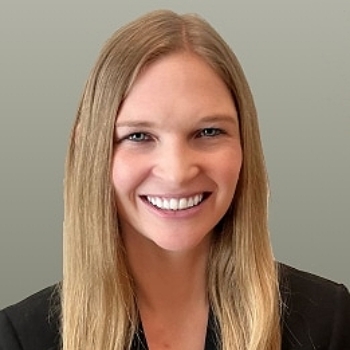
Kelsey LaPorte
Attorney
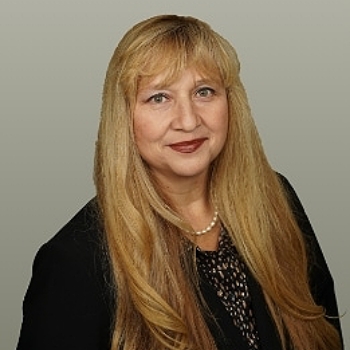
Maria Miranda-Hammon
Legal Representative
How it works:
- Complete the form so we can learn more about your situation.
- We will reach out within 48 hours to schedule your free, no-obligation consultation with an attorney.
- If your case can be pursued, we’ll start working on it.
- We only get paid if your case is approved.
How we can help:
- Free case evaluation by an attorney
- Social Security Disability Insurance application
- Social Security Disability Insurance appeal
- Disability hearing preparation
NO FEES UNLESS YOU WIN.
Award-winning service
Equipped with years of experience and thousands of successful cases, LaPorte Law Firm is the leading disability attorney in the Bay Area, and we have the awards and certifications to prove it.
